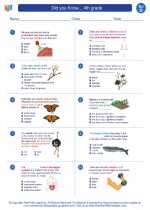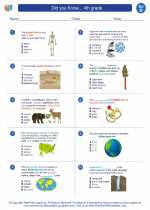Learned Behavior
Learned behavior refers to the actions and responses that an organism develops as a result of experience, practice, and training. These behaviors are not inherited genetically but are acquired through observation, instruction, and practice.
Types of Learned Behaviors:
- Imprinting: This is the rapid learning that occurs during a critical period of development, such as when young animals learn to recognize and follow their caregiver.
- Habituation: This is a decrease in response to a stimulus after repeated presentations, such as a bird getting used to the sound of a car passing by.
- Operant Conditioning: This involves learning through rewards and punishments, where an organism learns to associate a behavior with a consequence, like a dog learning to sit for a treat.
- Insight Learning: This is when an organism solves a problem or learns a new behavior through understanding the relationships between the parts of a problem, such as a chimpanzee using tools to obtain food.
- Social Learning: This involves learning by observing and imitating others, such as a young bird learning its song from its parents.
Study Guide:
Here are some key points to remember when studying learned behavior:
- Understand the difference between innate behaviors (instincts) and learned behaviors.
- Be able to identify examples of each type of learned behavior.
- Consider the advantages and disadvantages of learned behaviors in different species.
- Discuss the role of the environment and experience in shaping learned behaviors.
- Explore the ethical implications of using operant conditioning in animal training.
◂Science Worksheets and Study Guides Fourth Grade. Did you Know... 4th grade
Study Guide Did you Know... 4th grade
Did you Know... 4th grade  Worksheet/Answer key
Worksheet/Answer key Did you Know... 4th grade
Did you Know... 4th grade  Worksheet/Answer key
Worksheet/Answer key Did you Know... 4th grade
Did you Know... 4th grade  Worksheet/Answer key
Worksheet/Answer key Did you Know... 4th grade
Did you Know... 4th grade 

 Worksheet/Answer key
Worksheet/Answer key
 Worksheet/Answer key
Worksheet/Answer key
 Worksheet/Answer key
Worksheet/Answer key

The resources above cover the following skills:
Core Ideas for Knowing Science
Life Science
Organisms are organized on a cellular basis and have a finite life span.